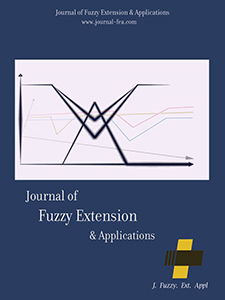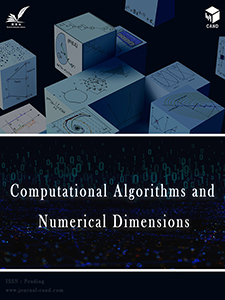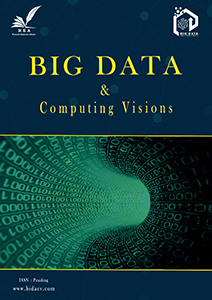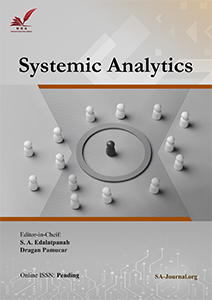About the Journal
Complexity Analysis and Applications (CAA) is a distinguished international peer-reviewed journal committed to advancing the interdisciplinary study and application of complexity theory and methods. The journal aims to publish transformative scientific papers that make significant contributions to the understanding and practical implementation of complexity analysis across a myriad of fields. The scope of CAA is broad and covers both traditional and emerging domains, such as:
Basic Theoretical Frameworks:
- Mathematical and Complex Analysis: Investigating the theoretical underpinnings of complexity and systems theory, including mathematical formalisms, theory of differential and integral equations, approximation theory, convolution theory, orthogonal polynomials, stochastic, non-linear equations and diffusion processes, and many other areas of pure and applied mathematics. Although centuries old, these subjects are under intense development, for use in pure and applied mathematics, physics, engineering, and computer science. This stimulates continuous interest for researchers in these fields.
Methodological Advances:
-
Agent-Based Modeling: Exploring the use of agent-based models in studying complex adaptive systems and emergent phenomena.
-
Computational Methods: Research articles that focus on computational techniques for simulating and analyzing complex systems.
-
Machine Learning: Delving into the role of machine learning algorithms in deciphering complex data sets and systems.
Applications in Science and Engineering:
-
Systems Biology: Investigating the complexity inherent in biological systems, from cellular to ecological scales.
-
Engineering Applications: Studies that apply complexity theory to solve real-world engineering problems.
Socio-Economic Complexity:
-
Computational Social Science: Using computational models to understand complex social systems.
-
Economics and Management: Investigating how complexity theory can inform economic and managerial decision-making.
Humanities and Other Disciplines:
-
Ecology: Research that applies complexity analysis to ecological systems and sustainability.
-
Urban Systems: Articles that address the complexity of modern urban environments.
Hot Topics and Cutting-Edge Knowledge:
- Focused on emerging trends and transformative research in the realm of complexity theory. This includes novel methodologies and applications that extend the current understanding of complexity.
Interdisciplinary Collaboration:
- Emphasizing the benefits of interdisciplinary approaches to tackle complex challenges, from stakeholder engagement to participatory methods that utilize complexity theory in diverse contexts.
Complexity Analysis and Applications serves as a conduit for impactful research that transcends disciplinary boundaries, encouraging cross-disciplinary partnerships and innovation. By advancing complexity theory, computational methods, and groundbreaking applications, the journal aims to contribute to the progression of knowledge and the practical application of complexity analysis in various disciplines.
Publication Frequency: Complexity Analysis and Applications publishes two online issues per year. Processed and accepted papers, complete with full bibliographic data, are continually added to the issue throughout the year.
Open Access: CAA is an open-access journal, ensuring that all content is freely accessible to users and institutions. Readers have the freedom to read, download, copy, distribute, print, search, and link to the full texts of articles without prior permission from the publisher or the author.
eISSN (Online): xxxx-xxxx
Publication Fee: Free of charge.
Publishers: Research Expansion Alliance
 Metrics
Metrics



